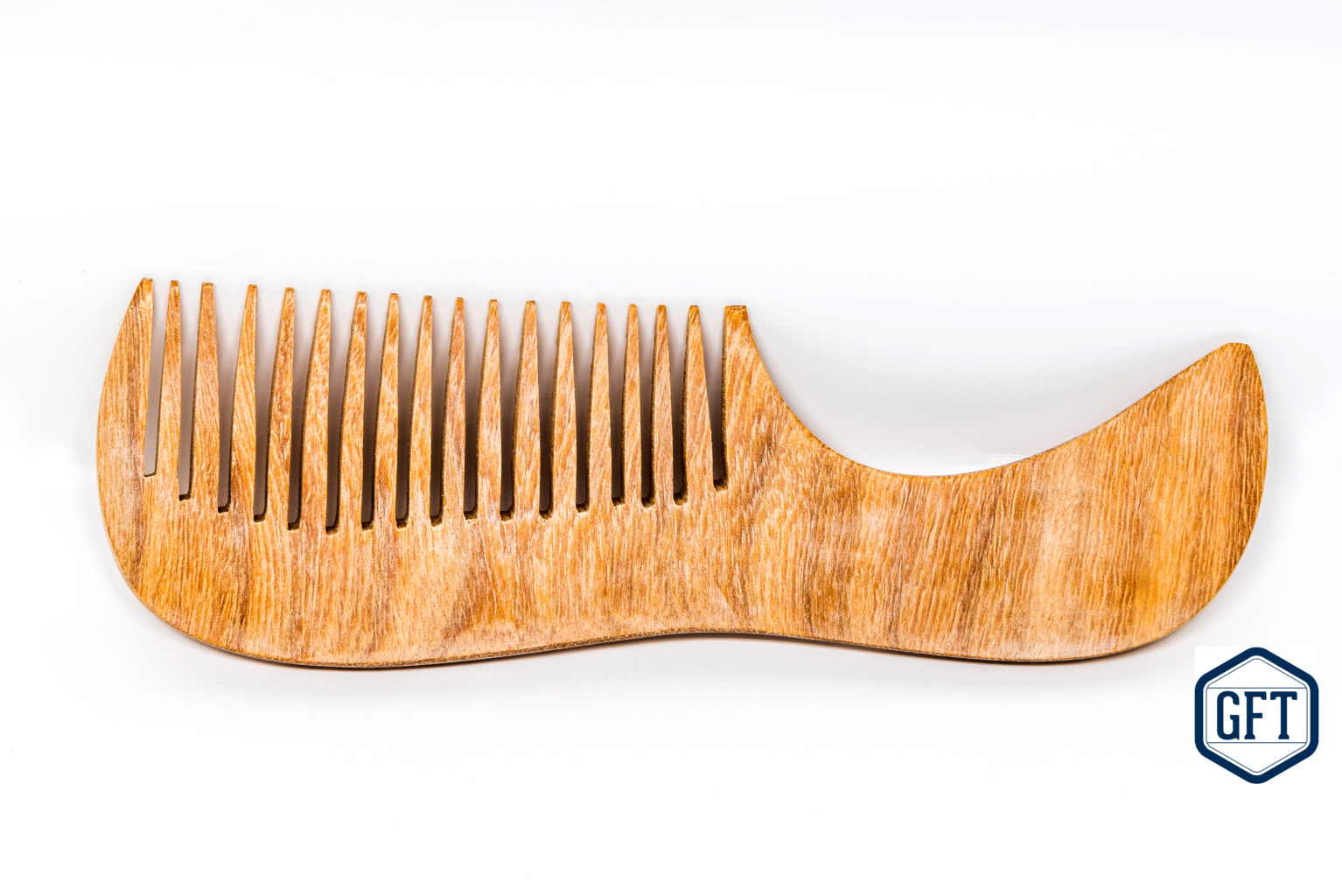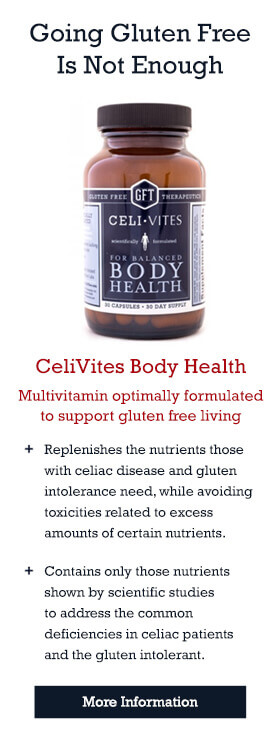
Is Celiac Disease damaging my Hair?
Let’s look at hair loss first
It’s a common – and often ignored – complaint from celiac patients: I’m losing my hair, what can I do? Is celiac disease damaging my hair? Actually, there are several types of hair loss associated with celiac disease, from mild hair loss due to nutritional deficiencies to a condition known as alopecia areata, which is an autoimmune disease.
Let’s have a look at causes of hair loss caused by celiac disease and what you can do to prevent or treat this condition:
Celiac disease and Alopecia areata
The relationship between celiac disease and alopecia should not come as a surprise: after all, they’re both immune conditions (even though researchers don’t really understand what triggers alopecia). This condition, which may affect both men and women, usually manifests as several bald patches all over the head. In extreme conditions, it may even lead to complete baldness. Luckily for those patients suffering from these bald patches, embarking on a gluten-free diet seems to do the trick and patients very happily report hair growth within a few months. Curiously, one patient reported re-appearance of bald patches after accidental exposure to gluten, which disappeared again after finding and eliminating the source of contamination.
Nutritional deficiencies can lead to severely damaged hair and hair loss
The second cause for hair loss – and perhaps more common among celiac disease patients – is caused by nutritional deficiencies and weight loss. Malabsorption of vitamins and minerals can cause an array of nutritional deficiencies, which can affect many parts of the body, including hair growth.
Even in cases of mild nutritional deficiencies, where patients may not necessarily experience hair loss, hair may develop a lifeless and brittle appearance. It’s almost impossible to pinpoint exactly what nutrient is causing the problem, as there are multiple examples of vitamins and minerals that are involved in the synthesis of proteins essential for hair growth. For celiac patients, complaints of brittle and thinning hair, dandruff, dermatitis and itchy scalp, excessive gray hair, slow growing hair with split ends and generally damaged hair may all be signs of nutritional deficiencies.
Let’s look at the vitamins and minerals critical for hair growth
Both vitamins and minerals play a vital role in hair growth and, either caused by immune alopecia, or nutritional deficiencies, their deficiencies can cause not only hair loss but a variety of other hair-related problems as noted above. If you are experiencing brittle, damaged hair as well as hair loss you may need to supplement your diet with the following:
Vitamins
- Vitamin C: This vitamin is essential for the production of collagen, which is a key ingredient for hair growth. Low levels may cause hair loss, anemia and high risk of infections.
- Vitamin D: Vitamin D promotes hair follicle differentiation, and studies have shown that its deficiency can cause hair loss.
- Complex B: Several vitamins in the B complex have an impact on hair growth. For example, folic acid is not only an essential ingredient to grow hair, but it’s also needed to re-build hair follicles, prevent gray hairs, and regulate sebum glands in the head. In addition, vitamin B5 is also involved in stimulating hair follicles and accelerates pigment production.
- Biotin (Vitamin B7): This enzyme is essential for your body to metabolize fats, and deficiency symptoms include hair loss, brittle nails, and fatigue. About half of the biotin in our body is produced by the bacteria in the gastrointestinal tract, so it should not come as a surprise to say that celiac disease patients may have low levels, which may end up causing hair loss. Interestingly, studies have shown that biotin supplementation seems to have a positive effect and reduce hair loss.
Minerals
- Zinc: This mineral plays a role in hundreds of reactions in the body, including the production of collagen, which is essential to growth. Its deficiency in the diet can lead to brittle and dry hair and excessive loss.
- Iron: Deficiency of this mineral – so common in celiac disease patients – is associated with both alopecia areata and hair loss due to nutritional deficiencies. It may also cause hair to grow very slowly as well as thinning and brittle hair.
- Copper: Copper is vital for keratin fiber strength. As a consequence, its deficiency may result in weak and fragile hair with a tendency for early graying.
- Selenium: This element is a component in many chemical reactions in the body, including hair growth. Studies have shown that deficiency may cause alopecia and pseudoalbinism, which can be reversed with adequate diet supplementation.
- Silicon: This mineral is responsible for the production of connective tissue, and it’s an essential ingredient in hair formation. Oral supplementation in patients with silicon deficiency showed a marked improvement in hair strength and elasticity.
- Calcium: Curiously, concentration of calcium is about 200 times higher in hair that in the bloodstream, which means cases of deficiency will undoubtedly affect hair growth.
When there’s a problem….
If you start noticing excessive hair loss or brittle and lifeless hair, talk to your health care provider. You may need to see a dermatologist to ascertain the root of the problem but, the good news is that for most cases, a gluten-free diet, and adequate supplementation should promote healing. We have seen severely damaged hair return to beautiful, healthy hair with strict adherence to a gluten-free diet accompanied with targeted supplementation. However, it’s important to note that it will take some time for the body to find its balance again and you may not see shiny and healthy hair for a while.

Comments ()
















I have recently been diagnosed with celiac. Although I had many symptoms,hair loss, my health care provider just chalked it up to stress. I started noticing hair loss in late 2012. 2013 I put myself on Biotin 10,000 mg @ day, later on to Sublingual B12 7,000 mg @ day.He sent me to a dermatologist that noted the hair was breaking off at the root. Still no one was or still is concerned that my blood tests show me at below normal for D3 even when I put myself on 50,000mg a wk. He wouldn’t write me a prescription for bone density because I was normal in 2011. In 2015 I got one finally and was diagnosed.w with osteopenia. Had lost an inch in height. Since Jan. 2016 I lost another in as of last week. I have horrible muscle spasms all over my body that I’ve complained of to every dr. I come in contact with. I’ve had Non HodgkinsLymphoma twice and remain cancer free 9 yrs. Saw my primary after the fact. I was fortunate to get Medicare to allow me a biopsy about 1 mo ago under diagnosis code history of lymphoma. My oncologist retired b4 I could get results back. The report reads normal bx for stomach and duodenum, however, when I called the office to ask if they remembered to check per celiac I was told yes! And that no biopsy’s at this time give proof,but he said I have it because of the abnormal appearance of white specks and erythema of the mucosa with no bleeding noted in first part of duodenum. My lymphoma was noted here twice as well only after I sought a gastrologist on my own. Cancer showed elsewhere on pet scans and cat scans but was obscured in duodenal area. Sorry but somehow I am most upset that I am not feeling validated. He says blood work that I brought in shows increased levels of IGG and IGA. The Rheumatologist who tested me I referred myself retired the day I got my results. With all the supplements I take on my own, I show off the drs blood reports although no one is concerned but me. The more I am concerned, the more he documents it is anxiety. I see a primary in Charlotte Mecklenburg Health Care System. His notes go into the system and every other dr I see pulpit up and see anxiety. I know I need supplements but do not have anyone to properly test my blood .I have interstitial cystitis which prevents me from drinking orange juice or taking vitamin C. I also can’t tolerate spinach or collard greens as these foods cause ulcers on my bladder. I was born with a congenital white cell count that was determined over 40 yrs ago by a bone marrow biopsy. I used to take prescription iron meds. Again no one addresses this either believing it was due to chemo. It was not, nor did I have hair loss then. I reacted to the shampoo the dermatologist gave me as well and scalp got inflamed. I bought Nexium hair products as suggested by my beautition and biosilk for hair. Still having redness on scalp and face. Noticed last night both contain wheat. I’ve seen not to use anything like shampoo, soap, etc with gluten down to it doesn’t make a difference. Obviously nutrition plays a big part. I’m on Medicare and was disabled in 2003 so my income is very very tight. I am waiting for GI office to set me up with a nutritionist and was told Medicare will not cover costs for this visit? I am curious that they won’t given that I also was diagnosed with diabetes at same time as Lymphoma? Also since these nutrients play a very huge part in treatment if I am successful in getting a doctor to do blood tests I need, it would be nice if dr. could write a prescription saying these vitamins and nutrients are medically necessary. I worked in medical field over 35 yrs as a professional in Radiology so do understand my reports and blood work. I sort of feel I’ve fallen again through the cracks. I have been defending my health status since I was 19. I am tired now I am 66 but until 3 yrs ago have looked like I was still in my 40’s. With all the vitamins shops I shared I am taking this is what my d3 level is:vitamin D 25 Hydroxy is 29 before I stopped the gluten. Normal is 30 -125. I only have results for B12 which was 291 normal being 211-946.0. Since reports mailed to all my drs. read normal for lymphoma again the report doesn’t document celiac. Again he told me off the record. Is Celiac disease not covered by Medicare? When I called 3 of my drs. to tell them I was recently given diagnosis of celiac and am sick,I was told my report is normal. They do not want to call the GI dr. as he writes in his notes to call his office.Based on this info what blood tests are recommended and what supplements should I take given info shared here suggests my numbers will go lower. Having great pain now with detox and 2 drs. primary and sports dr. won’t see me before Sept. I started bleeding 2 days ago. Do not have an appt.until next April 2017 but my Lymph numbers also reading above normal. Sorry these questions should be addressed to a dr. but showing only one doctor available and not able to book an appt. I take care of a mentally incapacitated adult son and no support system.
I have not been able to go to a dermatologist yet. I am fighting disability, have no insurance, and no income. What have is help from parents what they can do. I am still trying to figure out gluten in products used on body in things. I believe I have the food figured out unless the other foods that I have intolerances to that my body reacts to also are doing same problems to me as gluten…I do not know to all that either. But I have had crustiness patch been on scalp under hair and it soon progressed all over my scalp. Some areas are little spots of excessive buildup like a scab. It itches only at little times. I have tried baking soda, vinegar, coconut oil, tea tree oil, and few other things but I am not succeeding in getting rid of the crusty scalp. My regular doctor said she believed it probably was caused by gluten that still is showing up in test, and the toxins are going through my skin and since my hair is long and thick that it is doing buildup on scalp. I was wondering if this is some kind of gluten problem to scalp, if so how to treat it, and if there is still gluten going on in body or if the other food intolerances that occurred after I was diagnosed with Celiac that any treatment will not work. Thank you.
Losing my hair still have losse bowels,doing the best with gluten free food.
Celiacs can really damage your gut. Cutting out gluten alone isn’t going to help. I would try an elimination diet to see if celiacs caused other allergies. I did SCD (specific carbohydrate diet). It’s extremely difficult but I started eating foods that were easy to digest and slowly added more, learning what I could digest. It gave a chance for my stomach to heal and be able to absorb nutrients. Hope this helps. It was the hardest life style change I’ve done but I’m on the road to recovery.
I think that Amazing Grass Green SuperFood Drink Powder helped me with my dietary deficiencies, I typically make a smoothie with it. Eating the same things, or similar things seemed to help me get rid of gluten from my diet. Certain foods like corn, milk, rice, and coffee are similar to gluten found in wheat, and might actually make you sick too. Some foods claim gluten free on the packaging and still have gluten in them due to cross contamination from being made in a facility containing wheat. Make sure to use a different toaster without gluten, or avoid the toaster all together and use a frying pan. I hope this helps.
My so has suffered with this since birth, we have tried so many treatment, trying to regrow the hair, with he was able to do for about 3 years. He had it very long and it came out in patches. By the way he is 1/2 black/french and 1/2 Italian/Lebanese, we always thought it was the mixes of the races but my other two sons don’t have it. My youngest s had it for a short time then it went away, we have been attributing it to stress, which to us makes since. We spend over $3000 on removal by laser, my son came home crying after every treatment. He still as small patches here and there he shave and is able to wear a hat at his job as a lead brewing company. I wish he could he hair once again or be able to remove it completely. I will try some of your recommendations below thank you for the article! https://www.healthfitnesz.com/alopecia-areata-hair-loss-causes-treatment/